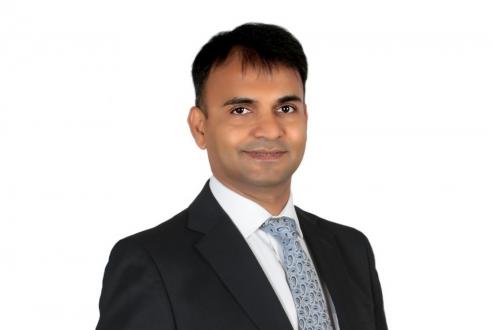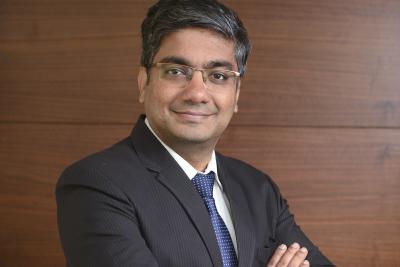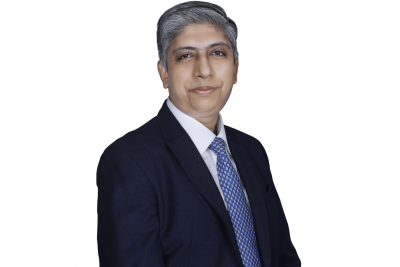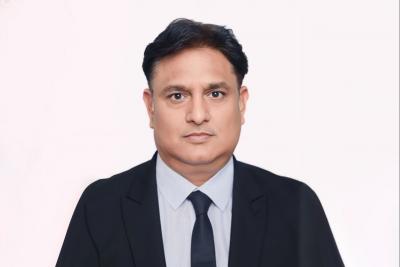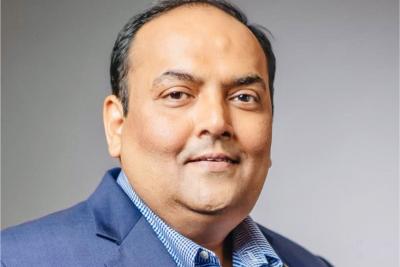Nuvama Private Expert Amit Saxena Surveys the Evolving World of Private Wealth in India

Jan 17, 2023
2021 in India was a remarkably good vintage for India’s wealth management market, and created a very solid platform for sustained growth, diversification, and dynamism ahead. But how was 2022? And what about the outlook ahead? Amit Saxena, Senior Managing Partner at Nuvama Private joined our panel of experts for a Hubbis Digital Dialogue webinar that focused on the changes taking place in India’s wealth market. This is a short distillation of his key observations.
Nuvama Private is one of the most prominent and successful of the independent wealth management firms, with clients ranging across New Age Entrepreneurs, Business Owners/Promoters, Family Offices, CXOs and Corporate Treasuries. The firm promotes itself as catering to more than 2,800 of India’s wealthiest families as well as some 800,000 high net-worth individuals and other affluent clients.
For the past ten years, Saxena himself has been at the forefront of building the Nuvama Private practice and has a bird’s eye view on the development of India’s wealth markets. Today, the firm reports that customer assets under advice have grown from about USD2.5 billion in 2015 to some USD26 billion in fiscal 2022, based on their belief in the power of agility and consistently delivering an ever-evolving wealth management proposition.
“The world has struggled since 2020, for sure,” Saxena told delegates. “But India has sailed on, with its private wealth pool continuing to compound at nearly 15% annually. As of March 2022, the cumulative pool of financial wealth in India stood at about USD4.5 trillion. And to everyone's surprise, the top 20 or top 25 private banks put together manage less than 10% of that pool, meaning the market is actually hugely underserviced, the competition under-developed and there is accordingly massive opportunity, as some 90% of the market is yet to be serviced by formal wealth management businesses.”
But to compete more effectively, the present incumbents and those entering this market need talent, and that, he reported, is in short supply.
“The industry is growing apace but honestly, talent, or rather the shortage of talent, is a big issue for everyone,” he told delegates. “We continue to hire people from adjacent lines of businesses, for example right from investment banking to institutional equity, to equity brokerages, even commercial bankers. This helps us grow the pool of talent, but at the same time, it brings us know-how of those verticals of the business or financial services.”
Additionally, he explained that Nuvama Private is also running a programme of hiring management trainees from top notch institutions and grooming them for the future wealth managers of the country. “We are hiring imaginatively, and we are investing in our people for what we see as a bright future,” he said.
He added that technology is one of the big enablers to help the wealth industry service those customers and clients who are under-served currently.
“We have been consistently investing in technology and new digital solutions for last five plus years, right from front end to back end to product to account onboarding and to transaction processing,” he reported. “We have offices and relationship managers present in eight centres of the country, but our clients are physically located in more than 100 cities and towns across this vast country. However, we can serve them thanks to our investment in technology, which has become a key enabler. It has helped us compound our assets under management by about 30 per cent year on year for last eight years, even throughout the pandemic.”
Saxena observed that for the vast, growing and under-served wealth market in India, they are largely being looked after by the commercial banks and maybe some independent financial advisors, but not by wealth management arms, or by the specialist wealth management firms that could offer them so much more in terms of advice, range of products and service. The professionalisation of the investment market is taking place gradually across India, and it is opening up incredible opportunity, he reported.
“Today, we have more of a real specialised wealth industry including listed wealth management firms, and this is helping us hire excellent new graduates, as the wealth industry has much more of a profile and a standalone presence and viability,” he reported. But he also acknowledged it takes time and great effort and not all the firms have the resources to invest properly in these areas.
He turned his attention to the UHNW market in India, explaining that these individuals, who are very often business owners and promoters, are increasingly global citizens, no longer fettered by local thought processes and more worldly, expansive, and imaginative in their outlooks.
“But of course,” he explained, “these clients still have large volumes of investments and money sitting in India, as there are regulatory restrictions on taking capital out. Nevertheless, we and they recognise that they want to diversify in terms of currency and geography. We advise our clients to participate into feeder funds, LRS etc and take the benefit of diversification and currency depreciation.
Meanwhile, for their wealth in India, UHNW investors are not really interested in plain vanilla types of investments such as mutual funds and deposits.
“They are looking at opportunities way beyond this, which is why the alternative and private asset markets in India are evolving,” he reported. “In fact, I am sure that in the next three to four years, the combined assets of all alternate managers will match or surpass the mutual fund markets here.”
He said Nuvama Private has been a key proponent of the alternatives space for the past 12 years, and actually runs alternatives as a standalone business in itself, advising not just UHNWIs, but also soliciting investments from sovereign wealth funds and overseas institutional investors.

Senior Managing Partner at Nuvama Private

